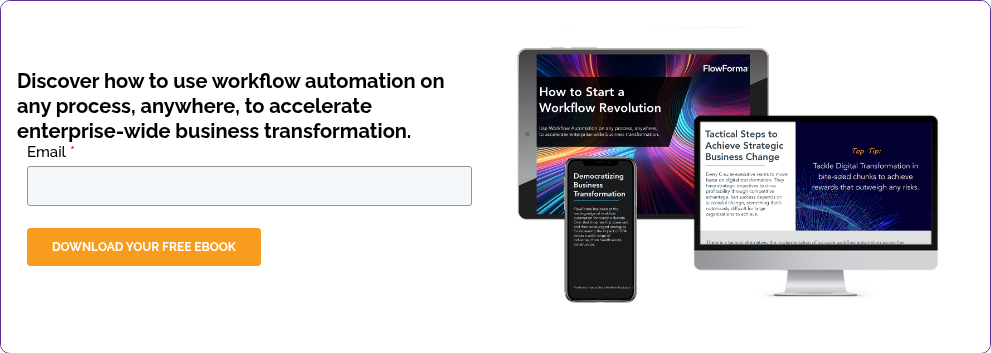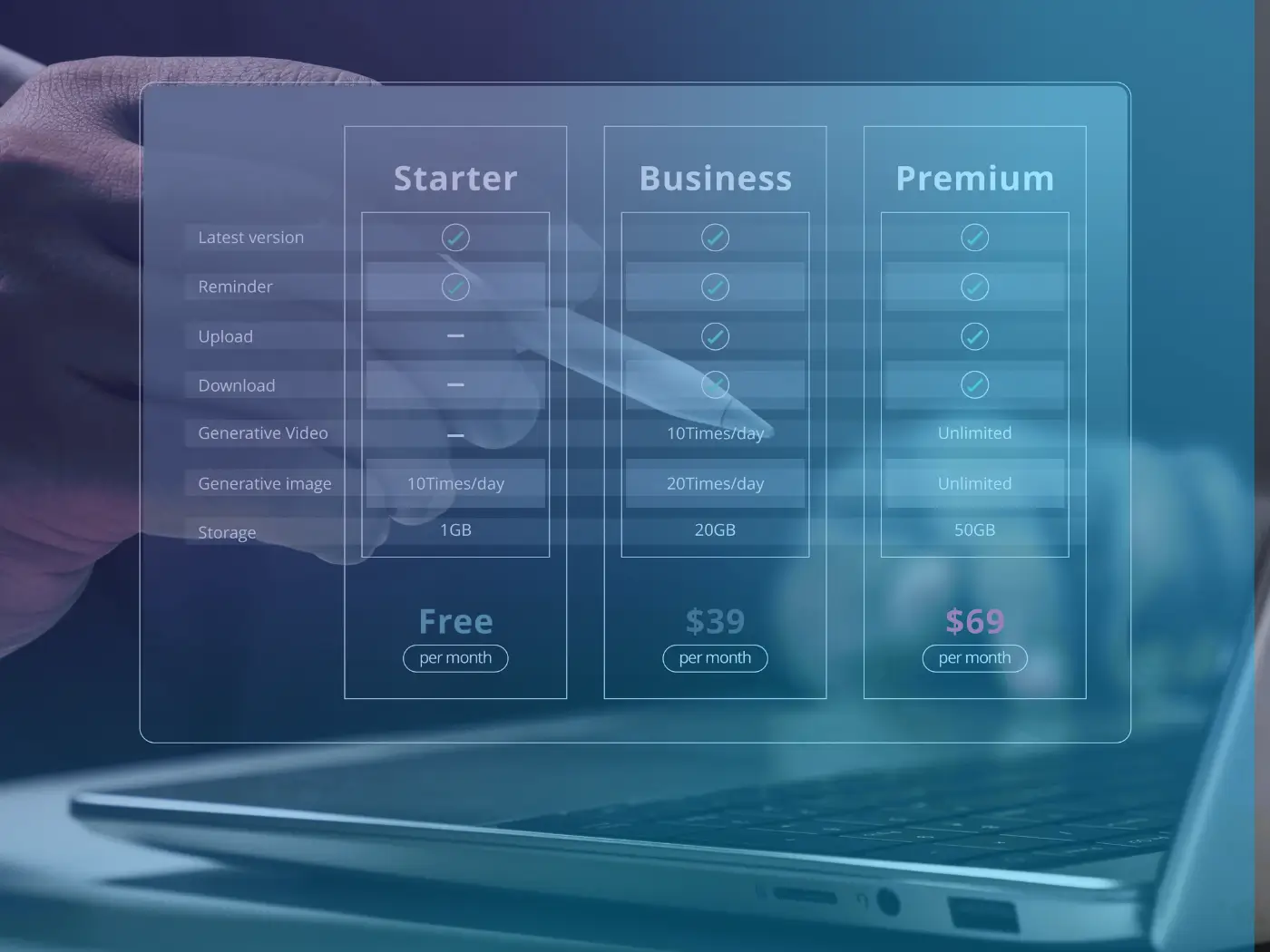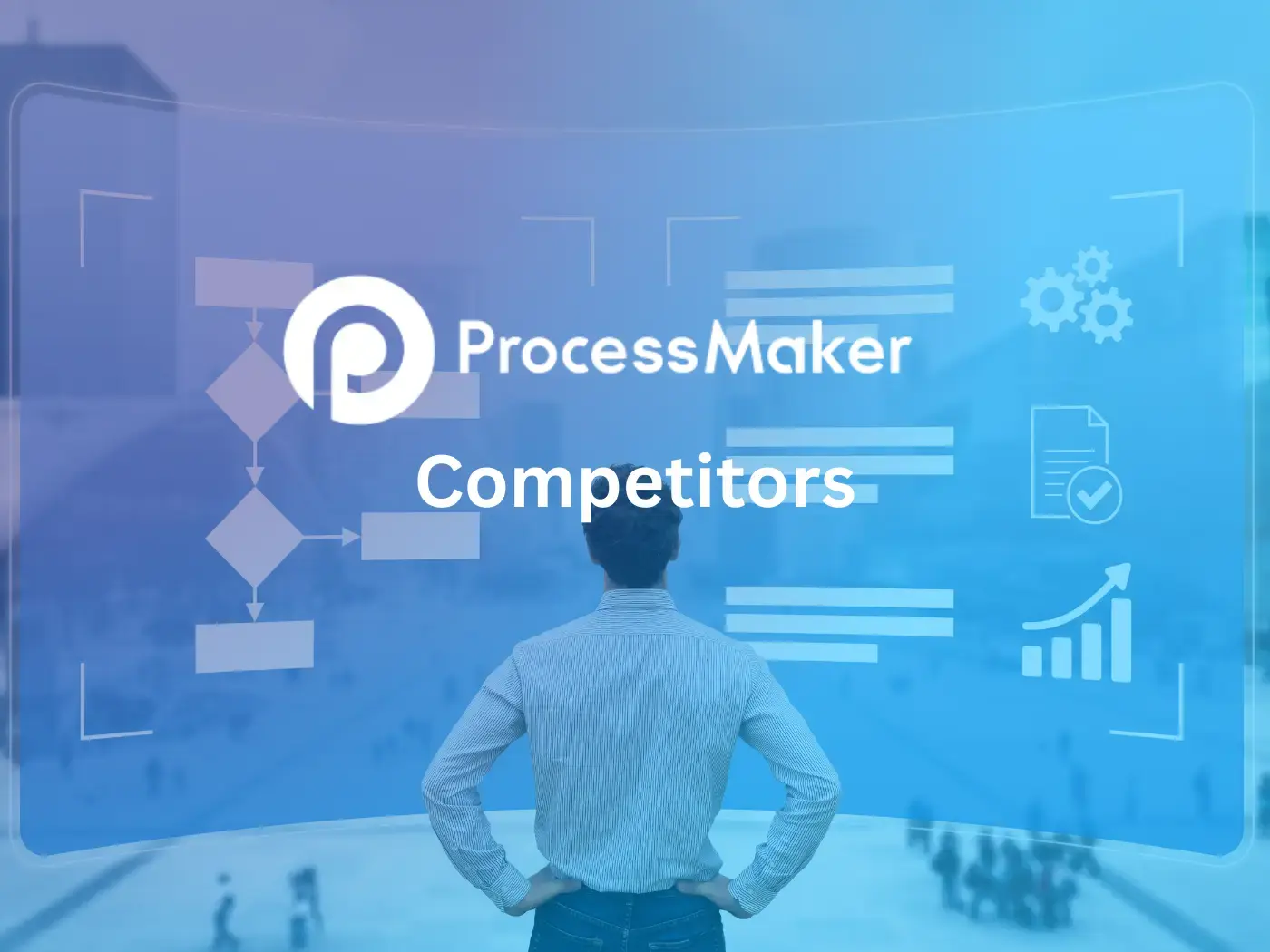I recently hosted a roundtable event attended by global CIOs and workflow efficiency was one of the key talking points. The delegates agreed that technology-powered process improvement is a prerequisite for every organization in the digital age.
In a business environment affected by labor shortages, unstable geopolitics, and challenging economic forecasts, workflow efficiency remains the one stable strategy that instills business resilience during uncertain times.
I agree with both of these sentiments and I am a huge advocate for improving processes to make work easier, more efficient and enjoyable.
In this blog, I'll share my experiences of tools, techniques, and strategies that are driving process improvement to support organizational objectives.
Let's get started with an explanation of workflow efficiency.
What is process improvement in an organization?
Workflow efficiency is the task of identifying manual tasks for automation to drive improved productivity, reduce cost and improve data quality.
Depending on your goals, workflow efficiency can apply to a single process such as onboarding, a function like HR or an organization-wide process improvement strategy.
No matter what the focus areas for your process improvement are, the same strategic approach should be applied.
Want to accelerate workflow process efficiency in your organization? Download our 'How to start a workflow revolution' guide for a blueprint to workflow success!
10 ways to improve workflow processes efficiency
1. Embrace AI-driven workflow efficiency
In January, I presented my workflow automation predictions on a webinar alongside FlowForma Product Specialist, Paul Stone. In the webinar, I predicted that Generative AI will continue to reshape our lives and accelerate workflow innovation for organizations. I still believe this is still the case.
You can watch my 2025 workflow predictions in my recent webinar.
EY is also predicting GenAI as the no 1 opportunity for businesses. It's the most fashionable buzzword in boardrooms today, but it can pressure senior IT leaders to adopt AI tools without a solid plan.
However, the idealist vision of AI autopiloting an organization is far from reality. Critical thinking is needed to align the right people, processes, and technologies to an AI-driven workflow efficiency strategy.

Image Source: Google Trends, AI Search In Google
AI has the potential to be a true game-changer for process improvement in the digital age. There are parallels to the Industrial Revolution, where manual tasks were replaced by technical advances such as mass manufacturing production. But, the key difference in today’s digital environment is that data holds the key to the success or failure of this technological revolution.
Bad data and AI
According to Gartner, bad data is costing organizations an average of $12.9 million every year. This cost highlights the potential business impact of poor data.
This impact is even more acute when it involves AI. At the recent roundtable event, we advised delegates not to deploy new AI technologies without having a robust data and analytics foundation at the organization's core. This topic resonates as IT leaders know both the potential and pitfalls of a data strategy.
Organizations with a foundation for AI-powered workflow efficiency will be empowered to make informed decisions and drive productivity, cost savings, and business growth.
But, without a robust data core, organizations will fail with AI. Algorithms programmed to auto-scale with inaccurate data can lead to a wide range of issues, and a waste of money and resources on rectifying the data inconsistencies.
2. Deploy citizen developers
In its essence, citizen development empowers non-technical workers to automate workflows without the need for advanced coding skills.
Citizen development supports organizations to improve workflow efficiency by empowering workers outside the IT team to digitalize processes.
And no code digital process automation is the technology that powers citizen development programs.
Process improvement example with citizen development
One of many tangible examples of successful citizen development by FlowForma’s customers was at the Liverpool School of Tropical Medicine (LSTM). LSTM saw the transformative potential of citizen development and placed 60 employees in FlowForma’s training program. With a ‘digital first’ mindset, LSTM was empowered to successfully launch 65 workflows in 14 months.
An organization that was once “awash with paper form-based processes” is now transformed and sees huge efficiency gains. Every department is now automating processes leading to significant time savings, cost savings and productivity improvements.
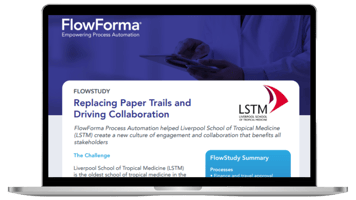 Read the LSTM case study
Read the LSTM case study
3. Use no code platforms
In our world at FlowForma, no code is the only way to instill digitalization in an organization's DNA. According to Forrester, organizations that empower their non-technical staff to automate processes achieve improved employee productivity by reducing repetitive tasks and manual errors and allowing them to focus on high-value work.
A ‘no code’ approach is the most direct way to improve workflow efficiency. Since process owners and business units are enabled to innovate with minimal (or no) support from IT or outside programming, it’s a powerful tool for scaling process improvements.
Learn more about no code technology in this short video:
No code also enables a higher level of organizational contribution by users than ever before, leading to an increased influence on organizational performance and a higher level of C-Level support. But no code investment is just part of the journey.
4. Investment in workflow efficiency
If you are looking for a tool to drive your process improvement strategy, you'll need to find one that can demonstrate a return on investment.
Putting data at the heart of your strategy will showcase the impact of process improvement on people, resources, and tasks. This in turn will highlight productivity improvements, workflow improvements, and task visibility to make data-driven decisions.
5. Start small and Scale
We recommend focusing on a limited number of workflows, building for scale, and automating that sample process across the organization. Using this approach can mean the difference between incremental and exponential ROI.
Selecting a simple process with also embed learning across the process improvement team, which can power the strategy to scale in the future.
6. Become data-centric
Your organization needs to become data-centric and start standardizing approaches to workflow data collection, analysis, and reporting. If you don’t follow this approach, it becomes impossible to improve workflow efficiency. automation.
Without the visibility informed by rich data, it t will also become difficult to measure the ROI from your tech investment. Fast and easy access to data will help users measure workflow efficiency and effectiveness.
Dashboards can highlight errors, gains, and ROI in real-time helping to make the business case for technology simple. It is also a fast and simple way to measure workflow efficiency across tasks.
At FlowForma we recently released a new analytics module where you can seamlessly build dashboards within the product without needing 3rd party tools like Excel or Power BI. If you’d like to learn more, check out the new analytics module here.
Data success story
One example of an organization where data was central to process improvement was the A14 Integration team. The A14 Cambridge to Huntingdon Improvement Scheme was the largest construction project in the UK. It was a £1.5 billion joint venture between Costain, Skanska and Balfour Beatty.
The project goal was to deploy FlowForma Process Automation for a process for complete data audibility and traceability across the project. A central data repository was successfully developed enabling accurate reporting across the project which resulted in the avoidance of a multi-million-pound compliance fine.
Data-led process improvement empowered the A14 Integration team to demonstrate compliance and avoid potential fines while demonstrating the ROI for their technology investment.
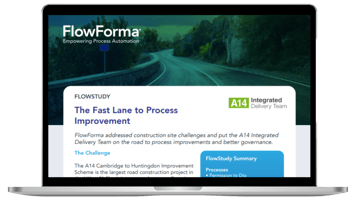 Read the full case study
Read the full case study
7. Situational analysis of existing workflows
Before you can begin a process improvement plan, you'll need to conduct a situational analysis of the organization's workflow efficiency. Start by:
-
Mapping your current processes.
-
Identify opportunities to optimize current processes.
-
Map the future state.
-
List how to get there.
-
Begin optimizing your workflows.
8. Continuous improvement
Efficient workflows are the cornerstone of a successful process automation strategy. I would recommend taking the Kaisan approach to constant improvement - making small improvements to workflows that will positively impact the holistic strategy.
Data is central to the continuous improvement plan as each stage of a workflow needs to be analysed for improvements.
Get employee feedback to gauge the success of your process automation strategy. This will be key to determining the success of your workflow automation initiative.
9. Pick the right workflows to automate

As highlighted by this image, FlowForma Process Automation supports workflow efficiency for a wide range of tasks.
My advice is to:
-
Start with a workflow that is simple to automate and then scale
-
Workflow is identified as a pain point
-
Identify task owners to guide the steps in the workflow and get employee feedback
-
ROI from automating workflow can be demonstrated
-
Backing from the business area for the project is needed
10. Choose the right automation tools
My final tip for workflow efficiency is to find the right automation tools for your business goals. Vendor selection is key as the right platform will determine the success or failure of your process improvement strategy.
My advice is to:
-
Source a platform with a proven track record of delivering process improvement
-
Speak with the customers to review their experience of the platform
-
Ask yourself if the platform scales with your future growth 5 -10 years down the line
-
Check if the platform provides onboarding and support
- Test the platform is a free trial environment
- Bonus tip: test FlowForma Process Automation free for 7-days here.
See how FlowForma Copilot helps to improve workflow efficiency in this IT Incident Management demo.
Challenges in workflow process efficiency and solutions
Moving from legacy to digital-first
One of the challenges I see regularly is when organizations transition from legacy systems to digital workflows. There has to be buy-in across the organization, from top to bottom, to adopt a digital mindset alongside the digital platform to drive workflow efficiency.
Adoption
When introducing a new platform for workflow efficiency, the adoption among users is critical to success. If users don't adopt the platform, organizations will struggle to achieve their process improvement goals or attain ROI.
Identifying digital champions is an important step in overcoming this challenge. Digital champions who are tech-savvy are more likely to embrace new technology.
Data Collection
Data plays a central role in the success of a workflow efficiency strategy. Without good data, process improvement will be difficult as the analysts of the data will be slow and cumbersome.
A platform like FlowForma Process Automation provides companies called digital forms that allow workers to capture data using a mobile, desktop or tablet device anywhere in the world.

Forms empower workers to collect data in real-time for each business step in a process while achieving a comprehensive audit trail for informed decision-making. AI-powered automation expedites form filling, accelerating processes, enhancing overall efficiency, and saving time to work on value-added tasks.
Benefits of workflow efficiency
More time for the value-added task
One of the major benefits of a successful workflow management strategy is carving back workers' time to focus on value-added tasks.
With streamlined tasks, workers will save time on capturing and reporting data on spreadsheets and paper. Instead, digital workflows will provide a faster way to work, improve project productivity and streamline communication.
Save money
Costing savings are a key benefit of a workflow improvement program. Organizations can save significant revenue from productivity improvements, operational efficiency and data-driven decisions.
Better employee experiences
If you ask line workers, they'll tell you they hate working with manual processes. Introducing digital workflows to replace spreadsheets, email and paper will be music to your team's ears. More streamlined ways of working lead to better employee experiences across the board.
Better data and visibility
Improving processes will lead to better data collected across business tasks. This will help improve the data quality, visibility and reporting, leading to the business making better, more profitable business decisions.
Improve workflow efficiency
Improving workflows with data insights will also improve collaboration, identify inefficiencies, and enable project bottlenecks to be fixed. This will help protect team managers deliver projects on time and within budget.
Conclusion
Digitalization is a journey. No matter where your organization sits on its journey, we invite you to explore the opportunities no code digital process automation presents.
Take your next steps with the guidance of experts who have developed a model for success. Talk to our team today for obligation-free advice on how to start and scale digitalization in your organization.
.png)


